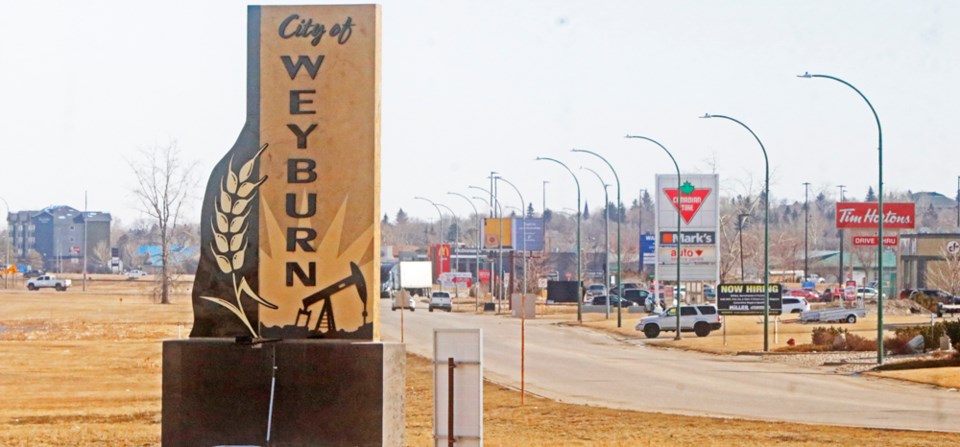WEYBURN - Well, well, Weyburn, look at you now. From a fledgling, sometimes floundering town over 110 years ago, you have come a long way as a prairie city. We all proudly, and of course politely, came along for the ride.
Fact or Fiction – the story is that city founders coaxed some passengers off the train and counted them as our own citizens to pad the headcount to meet the population criteria to become a city.
From a motley gathering of hopefuls who arrived here from around the world with only hope, hustle and dedication they built a city. Land agents, bartenders, realtors, carpenters, roadbuilders, cooks, bankers, entrepreneurs, farmers, ranchers, bargirls, newsmen, grain buyers, loan sharks, clerks and cowboys, carved a city where only grassland stretched to the horizon.
The wheels of change began to roll. At first some residents lived in dugouts in the hillside, sod shacks, tents, until buildings blossomed into a settlement. Eventually the horse-drawn wagons gave way to car dealerships. The towering elevator landmarks eventually gave way to the first Inland Grain Terminal. The majestic vine-covered brick building, the largest structure in Saskatchewan, built in 1921 to house the mentally ill, eventually fell to the wreckers hammer and the new Weyburn General Hospital to serve all needs began construction this year.
In 1921, when women won the vote, another major change took place in the male-dominated settlement. Women could float a loan, own property, and open businesses.
As the city emerged the boarding houses gave way to comfortable hotels with water slides even. The wooden sidewalks had long ago turned to concrete and muddy dirt streets to pavement. The dreamers who came expecting to find streets lined with gold had been misled, but the city gave citizens a golden secure lifestyle and fine place to raise their families.
The lazy Souris River winding through town was no longer the swimming hole or the frozen hockey rink as new sporting buildings continue to offer organized sports programs. The little city, which rose from humble beginnings, is all grown up. The concept of shopping local is not always easy but local loyalty is something to remember. Weyburn doesn’t have to beg for people to be volunteers – they just seem to grow here and volunteerism is a major strength to keep the wheels of progress turning.
Change was the force that drove the progress of the little town, which turned into a city, but there were many challenges and hurdles in the path. Recessions, and the Great Depression of the 1930s left wounds, and the First and Second World Wars forever left their mark. With resolve and energy and good municipal leadership, the wheels of change kept rolling ahead. The fortunes of a city depend upon the strength of its citizens and prairie pride and swagger grew – politely of course.
Cooperation between the city and the surrounding district also drives the wheels of progress, Urban and Rural working together taking the best of both worlds because they need each other to prosper. As small towns dwindled in number the services of the city became vital for rural residents. Our family was rural until retirement. However I had worked at the Saskatchewan Hospital prior to marriage and then much later in marriage had the privilege of working in journalism for the local newspapers, so I was able to become part of the fabric, which binds the rural/urban to each other.
Weyburn is a city with a Small Town feel, seemingly untouched and undaunted by the forces of change. The wheels keep turning as new proposals and new visions emerge. We shall roll along. happy to be part of it all.
This Is Us, Weyburn, ll,019 citizens strong. So what do you think of us now?




